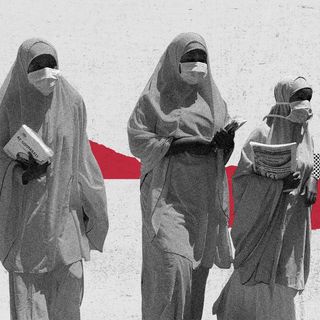Romanian lawmakers have approved a law imposing a blanket ban on gender studies across educational institutions in the country, inviting widespread criticism and condemnation from Romanian students and academicians.
On Tuesday, the Romanian Parliament passed this amendment to the country’s education law, banning all educational institutions from “activities propagating theories and opinions on gender identity according to which gender is a separate concept from biological sex.” The law was amended without public debate, and without consultation with teachers, parents and young people. Human rights groups in Romania believe this is an attempt by the government to engage in thought policing. In fact, a number of educators have declared that they will not adhere to the new legislation.
“I really don’t plan on stopping [gender studies] for the simple reason that if I did I wouldn’t do my duty anymore. Because my role is to guide my students to understand man’s behavior in society. And people are diverse,” Gelu Duminica, faculty member at the Department of Sociology and Social Assistance in the University of Bucharest, who teaches a course on Minorities and Equity, said in a Facebook post yesterday. “The concept of gender allows for an education attentive to differences, to the sensitivities of each child, to its possibility to find themselves in an inclusive society, in which any specificity is recognized as a trait and not as a disability,” Vlad Alexandrescu, senator and university professor, wrote in another Facebook post.
Related on The Swaddle:
Japanese Region Mie Criminalizes Outing LGBTQIA+ People Without Consent
In addition, a number of educational institutions, too, have come out voicing their collective opposition to the amendment. “[The amendment] contradicts some fundamental rights guaranteed by the Romanian Constitution and the international conventions to which Romania is a party: freedom of thought and conscience, freedom of opinion and university autonomy. The text of the law has no scientific basis and is a blatant example of interference in education and free expression,” the University of Bucharest said in a statement. The Babes-Bolyai University also expressed its “astonishment” at an academic theory being banned by law, and stated that: “An academic theory is tested academically and survives or disappears as a result of these tests carried out under ethical conditions, not otherwise!”
The National Alliance of Student Organisations in Romania has started an online petition urging President Klaus Iohannis to reject the law, stating that it contradicts with the principles of non-discrimination, and can create a vacuum of information that would directly impact members of the LGBTQIA+ community. They also expressed concerns that the lack of information about gender identities among youth could ramp up bullying of queer children and adolescents, and a ban of this nature could lead to punitive measures against teachers in the country.
Last year, ILGA-Europe, an NGO and advocacy group promoting the interests of lesbian, gay, bisexual, trans and intersex people, at the European level, had ranked Romania 38th, out of 49 European countries for its laws and policies related to promoting equality of the LGBTQIA+ community. Now, rights groups within Romania are worried that the country is following in neighboring Hungary’s footsteps, which had banned gender studies in 2018, and two years later, introduced an anti-trans bill ending legal gender recognition for transgender people.




